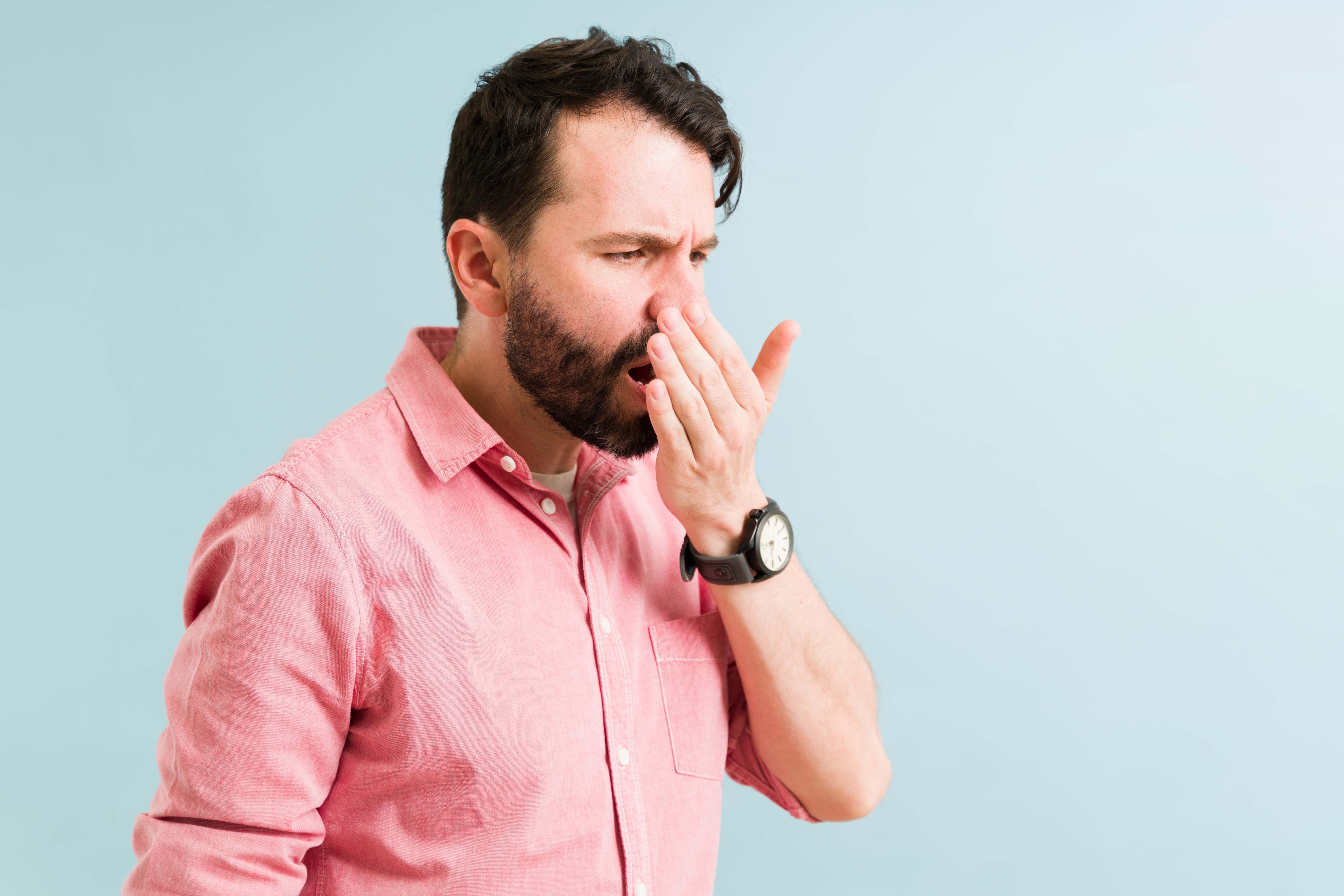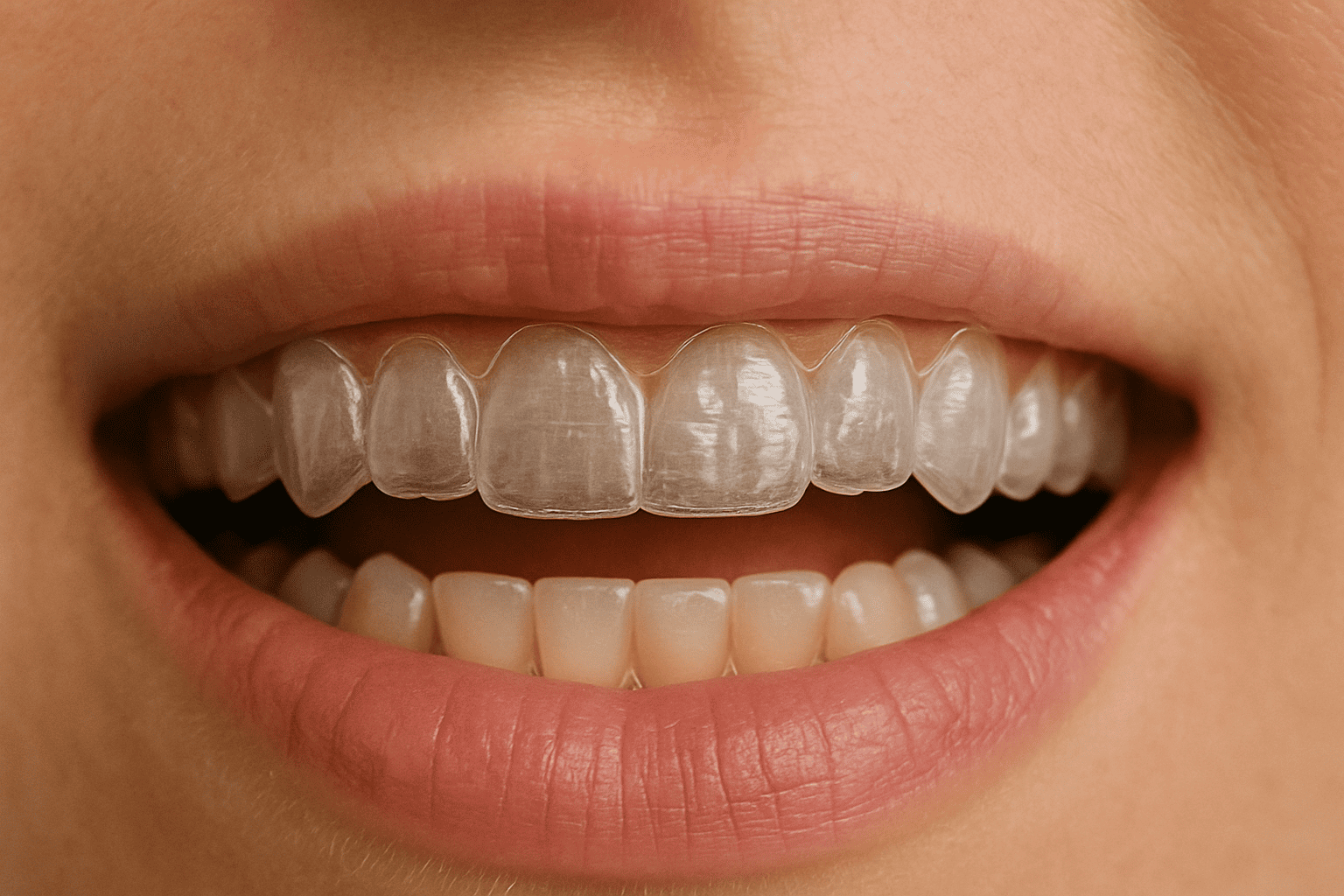Bad Breath: Symptoms, Causes, and How to Address Them
Struggling with bad breath? We’ll explore halitosis, its causes, symptoms, and practical solutions to keep your breath fresh and boost confidence.

Bad breath affects many people at some point in their lives. It can make social situations uncomfortable and lower confidence. Most cases can be managed once you identify the underlying cause.
What is Bad Breath (Halitosis)?
Halitosis is the medical term for bad breath. It's an unpleasant smell from the mouth that others can notice. Up to 50% of people have it regularly, with most cases (80-85%) starting in the mouth.
The leading cause is volatile sulfur compounds made by bacteria in your mouth. These bacteria break down food bits and proteins, creating the unpleasant smell.
How to Tell If You Have Bad Breath
One challenge with halitosis is noticing it yourself. Many people don't know they have it until someone tells them.
It's hard to detect your own breath smell because your nose gets used to it; this is called “olfactory adaptation.”
Here are some ways to check:
- Ask a trusted friend or family member - The most direct approach
- Lick-and-sniff test - Lick your wrist, let it dry for 10 seconds, then smell it
- Spoon test - Scrape the back of your tongue with a clean spoon and smell the residue
- Social cues - Notice if people step back when you talk or offer you mints
Common Symptoms of Bad Breath
Halitosis often has other signs beyond just the smell. Recognizing these can help you identify the problem early.
Beyond the odor, other signs include:
- A bad or metallic taste in your mouth
- White or yellow coating on your tongue
- Dry mouth or sticky feeling saliva
- People keeping distance during conversations
- Post-nasal drip or frequent throat clearing
- Persistent sour, bitter, or unpleasant taste

Morning Breath vs. Chronic Halitosis
Not all bad breath is the same. Knowing the difference between temporary and chronic halitosis helps determine when to be concerned.
Almost everyone has "morning breath," that stale smell when you wake up. This happens because saliva decreases during sleep, letting bacteria multiply. Morning breath is normal and goes away after brushing.
Chronic halitosis stays throughout the day despite regular brushing and flossing. It often points to an underlying issue that needs attention.
Common Causes of Bad Breath
Finding the root cause of halitosis is key for effective treatment. Let's look at factors that contribute to bad breath
.
Oral Causes
Most bad breath starts in the mouth, with several specific factors involved.
- Poor oral hygiene is the main cause of bad breath. When you don't brush and floss regularly, food stays in your mouth, helping bacteria grow and create odors.
- Tongue coating is often missed but important. The back of your tongue can hold lots of bacteria. Studies show up to 90% of smell-causing compounds come from here.
- Gum disease creates spaces between teeth and gums where bacteria grow. The resulting infection makes a distinct unpleasant smell.
- Dry mouth happens when there's not enough saliva to wash away food and bacteria. Saliva naturally cleans the mouth, so less saliva leads to bad breath.
- Dental problems like cavities, poorly cleaned dentures, and ill-fitting dental appliances can trap food and bacteria.
Food and Lifestyle Factors
What you eat and your daily habits can affect your breath, sometimes for days.
- Certain foods, such as garlic, onions, and spicy foods, contain compounds that enter the bloodstream after digestion and are exhaled through the lungs, affecting your breath for up to 72 hours.
- Tobacco use leaves its own smell and dries the mouth, doubling the risk of gum disease.
- Coffee and alcohol can cause dry mouth and leave lingering smells.
- Low-carb diets or fasting can cause "keto breath," a fruity or acetone-like smell from ketones released during fat breakdown.
Medical Conditions
Sometimes bad breath comes from issues beyond the mouth, indicating a broader medical approach may be needed.
While less common, several health issues can cause bad breath:
- Sinus infections or postnasal drip bring bacteria-laden mucus to the back of the throat.
- Tonsil stones are hardened deposits that form in tonsil pockets, making a particularly bad smell.
- Acid reflux can cause a sour smell from stomach acids rising into the throat.
- Diabetes can create a sweet or fruity breath smell when blood sugar is poorly controlled.
- Liver or kidney problems may cause a musty or ammonia-like breath in advanced cases.
Diagnosing Bad Breath
A professional evaluation provides the most accurate assessment of halitosis and helps determine the most effective treatment approach.
Dentists typically diagnose halitosis through:
- Visual examination of the mouth, teeth, gums, and tongue
- Gentle probing to measure if your gums have pockets that can collect bacteria, which release a foul smell.
- Medical history review to identify potential causes
- Referrals to other specialists if a non-dental cause is suspected
Effective Ways to Address Bad Breath
Most cases of bad breath can be managed with the right approach. Here's how to handle this common problem.
Daily Oral Hygiene Routine
A consistent, thorough oral care routine forms the foundation of fresh breath and prevents most halitosis issues.
- Brush twice daily for two minutes each time, using fluoride toothpaste. Clean all surfaces of your teeth and the gumline.
- Floss daily and use interdental brushes to remove food and plaque from between teeth—areas your toothbrush can't reach.
- Clean your tongue with a scraper or your toothbrush. This can reduce smell-causing compounds by up to 75%.
- Replace your toothbrush every 3-4 months or sooner if bristles are worn.
- Clean dentures, retainers, or mouthguards thoroughly each day as directed. Effervescent tablets are recommended.

Dietary and Lifestyle Adjustments
What you eat and drink affects how your breath smells. Making smart choices can help maintain fresh breath throughout the day.
- Stay hydrated by drinking plenty of water throughout the day. Aim for 2-3 liters daily to maintain saliva production.
- Limit odor-causing foods before social events, or follow them with breath-freshening foods.
- Chew sugar-free gum containing xylitol after meals to stimulate saliva flow. This can increase production by up to 20%.
- Eat crunchy fruits and vegetables like apples, carrots, and celery, which help clean teeth naturally.
- Consider quitting tobacco to improve both breath and overall oral health.
Home Remedies
Several natural approaches may help manage bad breath between brushings or when away from home.
- Saltwater rinse - Gargle with warm salt water to kill bacteria and loosen any debris.
- Green tea - Contains compounds that can reduce smell-causing substances by about 30%.
- Herbs and spices - Chewing fresh parsley, mint leaves, or cloves can temporarily mask odors and may have mild antibacterial properties.
- Zinc-containing products - Lozenges or gums with zinc can help neutralize sulfur compounds.
Professional Treatments
When self-care isn't enough, dental professionals offer effective solutions for persistent halitosis.
- Regular dental check-ups every six months for radiographs and clinical examination to check for active gum disease
- Professional cleanings to remove plaque and tartar.
- Treatment for gum disease may include deep cleaning to remove bacteria from below the gumline.
- Dental lasers may be used for bacterial reduction.
- Special mouthwashes recommended by your dentist for specific conditions like excessive dry mouth or severe gum disease.
- Addressing underlying conditions - If bad breath persists despite good oral hygiene, your dentist might refer you to a doctor to investigate other causes.
When to See a Dental Professional
Knowing when to seek help is important, as some causes of halitosis require professional treatment.
Contact your dentist if:
- Bad breath persists despite improved oral hygiene and routine professional hygiene appointments.
- You have signs of gum disease (bleeding, swollen, or tender gums)
- You experience persistent dry mouth
- You notice white spots on your tonsils
- Your bad breath comes with dental pain or loose teeth
- You have dentures or orthodontic appliances that may not fit properly
Psychological and Social Impact
Bad breath affects more than just oral health—it can impact your overall wellbeing and quality of life.
Bad breath can affect more than just oral health. Studies show that chronic halitosis can lead to:
- Social anxiety and withdrawal
- Reduced confidence in personal and professional settings
- Relationship difficulties
- Avoiding social activities
Many people with bad breath don't know they have it or feel too embarrassed to seek help. Dentists are used to addressing this issue and can offer solutions without judgment.

Preventing Bad Breath
Taking proactive steps is the best way to avoid halitosis altogether. These simple strategies can keep your breath fresh.
- Maintain good oral hygiene with regular brushing and flossing
- Clean your tongue daily
- Stay well-hydrated throughout the day
- Visit your dentist regularly for check-ups and cleanings
- Avoid tobacco products
- Consider using an alcohol-free mouthwash
- Be mindful of foods that affect breath odor
FAQs About Bad Breath
These common questions address concerns many patients have about halitosis. Understanding these answers can help you better manage your oral health.
Is bad breath always caused by poor oral hygiene?
While poor oral hygiene is the most common cause, bad breath can also result from certain foods, medical conditions, or medications.
Can mouthwash cure bad breath?
Mouthwash may temporarily mask odors but doesn't address the underlying cause. Antibacterial mouthwashes may help reduce bacteria, but they work best as part of a complete oral care routine, and shouldn’t be used long-term unless specified by your dentist.
Why does my breath smell bad even after brushing?
You might not be cleaning your tongue, which harbors many odor-causing bacteria. Alternatively, the cause might be gum disease, dry mouth, or a medical condition.
Can stress cause bad breath?
Yes, stress can contribute to dry mouth and affect your immune system, potentially worsening gum disease and related breath issues.
Is bad breath ever a sign of something serious?
In rare cases, bad breath can signal conditions like diabetes, liver or kidney problems, or respiratory infections. If your bad breath persists despite good oral hygiene, consult a healthcare professional.
Will drinking more water help with bad breath?
Yes, staying hydrated helps maintain saliva flow, which naturally cleanses the mouth and reduces bacteria that cause bad breath.
Conclusion
Bad breath is common but manageable. In most cases, improving oral hygiene and addressing any underlying conditions will resolve the issue. Don't let embarrassment prevent you from seeking help; our dental team is here to provide solutions.
If you're concerned about halitosis, book an appointment with us. We can help identify the cause and develop a treatment plan tailored to your needs.






